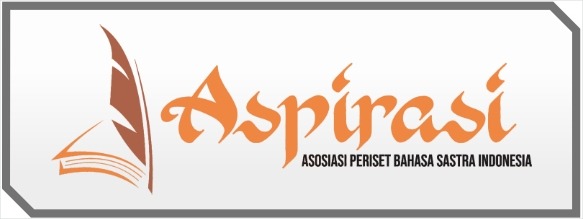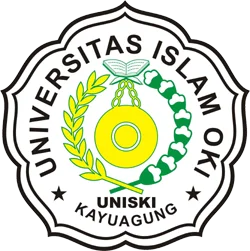Interactive Vocabulary Technique in Vocabulary Mastery Teaching: A Quasi-Experimental Approach
DOI:
https://doi.org/10.61994/jee.v1i2.356Keywords:
Teaching Vocabulary, Interactive Vocabulary, Vocabulary MasteryAbstract
Vocabulary is crucial in language learning. Vocabulary is also an important ability to learn to read, speak, write, and listen properly. This research aimed at figuring out whether or not the interactive vocabulary technique was effective in teaching vocabulary mastery to the Seventh-Grade Students of MTs Negeri 3 Muara Enim. Quasi experimental approach was applied in this research. This research involved 81 students of VII.1, VII.2, and VII 3 classes as the population and 54 of them as the sample regarding as control and experimental classes. Pretest and posttest were used to collect the data in line with 35 items of 17 fill-in-the- blank, 10 unscramble letters, 8 multiple choices. The data were analyzed by using Paired t-test and Independent sample t-test. The results showed that the t-obtained was 6.101 at the significant level 0.05 (5%) and t-table was 2.020 which indicated that alternative hypothesis (Ha) was accepted and null hypothesis (Ho) was rejected. It means that interactive vocabulary technique was effective in teaching vocabulary mastery to the Seventh-Grade Students of MTs Negeri 3 Muara Enim.
References
Abdalla, N. H. A. (2021). Teachers’ perspective in developing EFL learners’ vocabulary. International Journal of English and Studies, 3(1), 94-107.
Agnes, P. D. Y. (2008). Improving students’ vocabulary mastery through experiential learning: action research at the sixth year of SD Negeri Triyagan 2 Sukoharjo in 2007/2008 academic year (Doctoral Dissertation, Universitas Muhammadiyah Surakarta).
Alharbi, A. M. (2019). Building vocabulary for language learning: Approach for ESL learners to study new vocabulary. Journal of International Students, 5(4), 501-511.
Alqahtani, M. (2015). The importance of vocabulary in language learning and how to be taught. International journal of teaching and education, 3(3), 21-34.
Arrasul, A. R., & Halim, N. A. (2021). Improving students’ vocabulary Mastery by Using Extensive Reading at SMP Muhammadiyah Luwuk. BABASAL English Education Journal, 2(1), 34-40.
Brown. (2004). Language assessment: Principles and classroom practices. New York, NY: Pearson Education, Inc.
Courtright, M., & Wesolek, C. (2001). Incorporating interactive vocabulary Activities into reading classes 39 (1)
Gore, M. C. (2010). Inclusion strategies for secondary classrooms: Keys for struggling learners. Corwin Press.
Güven, S., & Bekdaş, M. (2018). The Effect of Using Caricatures on Vocabulary Retention in Foreign Language Teaching. International Journal of Eurasia Social Sciences/Uluslararasi Avrasya Sosyal Bilimler Dergisi, 9(31).
Haryadi, S., Sumarni, B., Imansyah, I., & Hidayatullah, H. (2021). Implementing Brown’s Teaching Principles on the Training of English for General Speaking Purpose for School Teachers and Staff. Jurnal Pengabdian UNDIKMA, 2(1), 1-8.
Hennings, D. G. (2000). Contextually relevant word study: Adolescent vocabulary development across the curriculum. Journal of Adolescent & Adult Literacy, 44(3), 268-279.
Lelawati, S., Dhiya, S., & Mailani, P. N. (2019). The teaching of English vocabulary to young learners. Professional Journal of English Education, 1(2), 95-100.
MacLean, I. (2000). Effects of Interactive Vocabulary Instruction on Reading Comprehension of Students with Learning Disabilities.
Manik, S., & Cristiani, N. (2016). Teaching Vocabulary Using Matching Word on Computer-Assisted. Language Learning. London: International Journal of English Language Teaching, 4(7), 1-26.
Marthila, L. (2020). The Effectiveness Of Using Mnemonic Technique In Teaching Vocabulary Mastery At The First Semester Of The Seventh Grade Of SMP N 2 Baradatu In The Academic Year Of 2019/2020 (Doctoral dissertation, UIN Raden Intan Lampung).
Overturf, B. L. (2023). Vocabularians: Integrated word study in the middle grades. Routledge.
Raju, N., & Joshith, V. P. (2018). Krashen’s theory of second language acquisition: A practical approach for English language classrooms. International Journal of Innovative Knowledge Concepts, 6(12), 179-184.
Schmitt, N., & Schmitt, D. (2020). Vocabulary in language teaching. Cambridge university press.
Syahri, I., Sulaiman, M., & Susanti, R., (2016). Metodologi Penelitian Pendidikan Bahasa Palembang: Roemah Sufie.
Tambusai, A., & Hasibuan, A. L. (2022). The Correlation Between Students’ Ability in Grammar and Vocabulary With Students’ Writing Paragraph Achievements at the Eighth Grade MTs Negeri 4 Mandailing Natal. International Journal of Educational Research Excellence (IJERE), 1(1), 120-127.
Thornbury, S. (2004). How to Teach Vocabulary. London: Longman
Wilsana, A. (2015). Teaching Vocabulary to Grade VIII Students at SMP Negeri 9 Palu by Using Word Wall Strategy.3(2).
Yudha, H. T., & Mandasari, B. (2021). The Analysis of Game Usage for Senior High School Students to Improve Their Vocabulary Mastery. Journal of English Language Teaching and Learning, 2(2), 74-79.
Downloads
Published
Issue
Section
License
Copyright (c) 2023 Sri Yuliani, Sri Hartati, Masagus Sulaiman, Saptika, Kurnia Saputri

This work is licensed under a Creative Commons Attribution-ShareAlike 4.0 International License.

Journal of English Education by https://jurnal.dokicti.org/index.php/JCSS/index
is licensed under a Creative Commons Attribution-ShareAlike 4.0 International Licensel
















